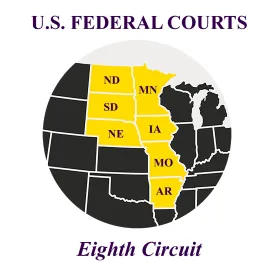Earlier this week, in Murray v. Grocery Delivery E-Services United States, CIVIL ACTION NO. 19-12608-WGY, 2020 U.S. Dist. LEXIS 87805 (D. Mass. May 19, 2020), a district court in Massachusetts issued a decision memorializing its earlier denial of a motion to compel arbitration. The court found that the unilateral, after-the-fact modification by defendant Grocery Delivery EServices USA Inc. (HelloFresh) of its contract with plaintiff to add an arbitration agreement with a class action waiver was a “bridge too far.” This case follows on the heels of a similar decision denying HelloFresh’s efforts (Engen v. Grocery Delivery E Services USA Inc., Case No. 19-cv-2433, 2020 U.S. Dist. LEXIS 63658 (D. Minn.)), which the Baron blogged about here.
As alleged in the complaint, when plaintiff signed up for her first and only HelloFresh grocery delivery in the fall of 2015, she agreed to HelloFresh’s terms and conditions. After her one delivery, she then canceled her subscription. The parties agree that the 2015 terms and conditions did not include an arbitration agreement. However, the terms and conditions, which stated they were governed by New York law, did contain a provision permitting HelloFresh to modify the terms and conditions. In 2017, HelloFresh modified its terms and conditions to add an arbitration agreement with a class action waiver. HelloFresh states that it notified plaintiff of this change in the terms and conditions through emails containing a hyperlink to the new terms. Plaintiff denies that she ever opened the emails or clicked on the hyperlinks.
As an initial matter, the court rejected the application of New York law to determine the validity of the arbitration agreement, finding that Massachusetts law applied. However, citing to the Engen case, the court noted that the result would be same under New York law.
The court then sidestepped the question of whether Hellofresh’s unilateral, after-the-fact modification of its terms and conditions made the contract illusory, finding that even if not illusory or unconscionable, plaintiff did not receive proper notice. First, following Engen, the court found that the arbitration agreement was not conspicuously communicated to plaintiff. Rather, “the new terms were hyperlinked at the bottom of a page full of loud, colorful text regarding sales. . . . They were hidden in small print in a paragraph of other text and there was nothing to draw attention to them or to suggest a change. The terms were in black text while the rest of the email’s promotions were spattered in bright green and yellow.” Moreover, even if it were conspicuous, the court found that the notice was “too little, too late,” as Hellofresh’s own contract terms required that such notice be provided prior to confirmation of a purchase, which it wasn’t here.
This is not the last word on the issue, however, as HelloFresh has appealed this denial of arbitration (to the First Circuit) and the denial in Engen (to the Eighth Circuit).




 />i
/>i

